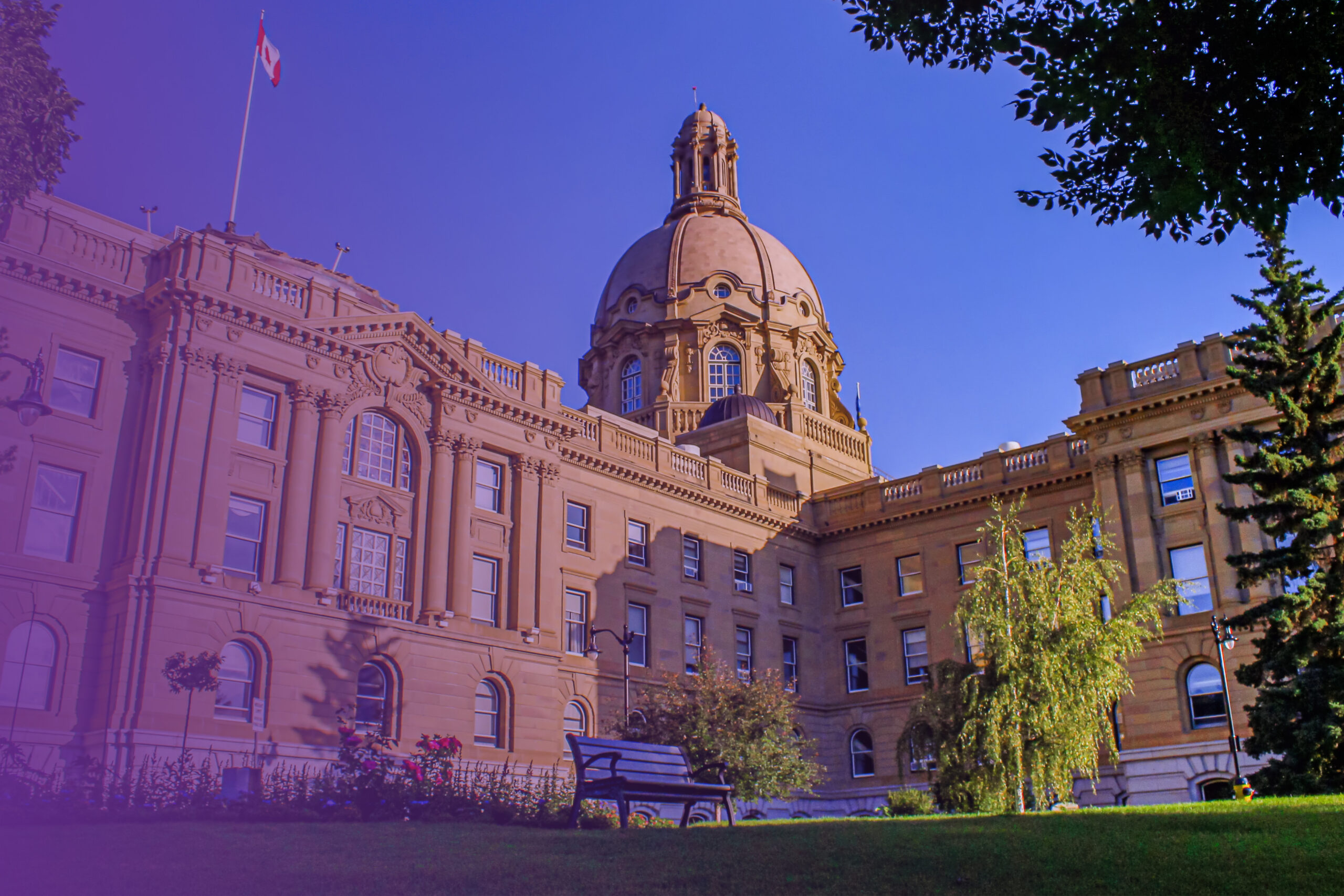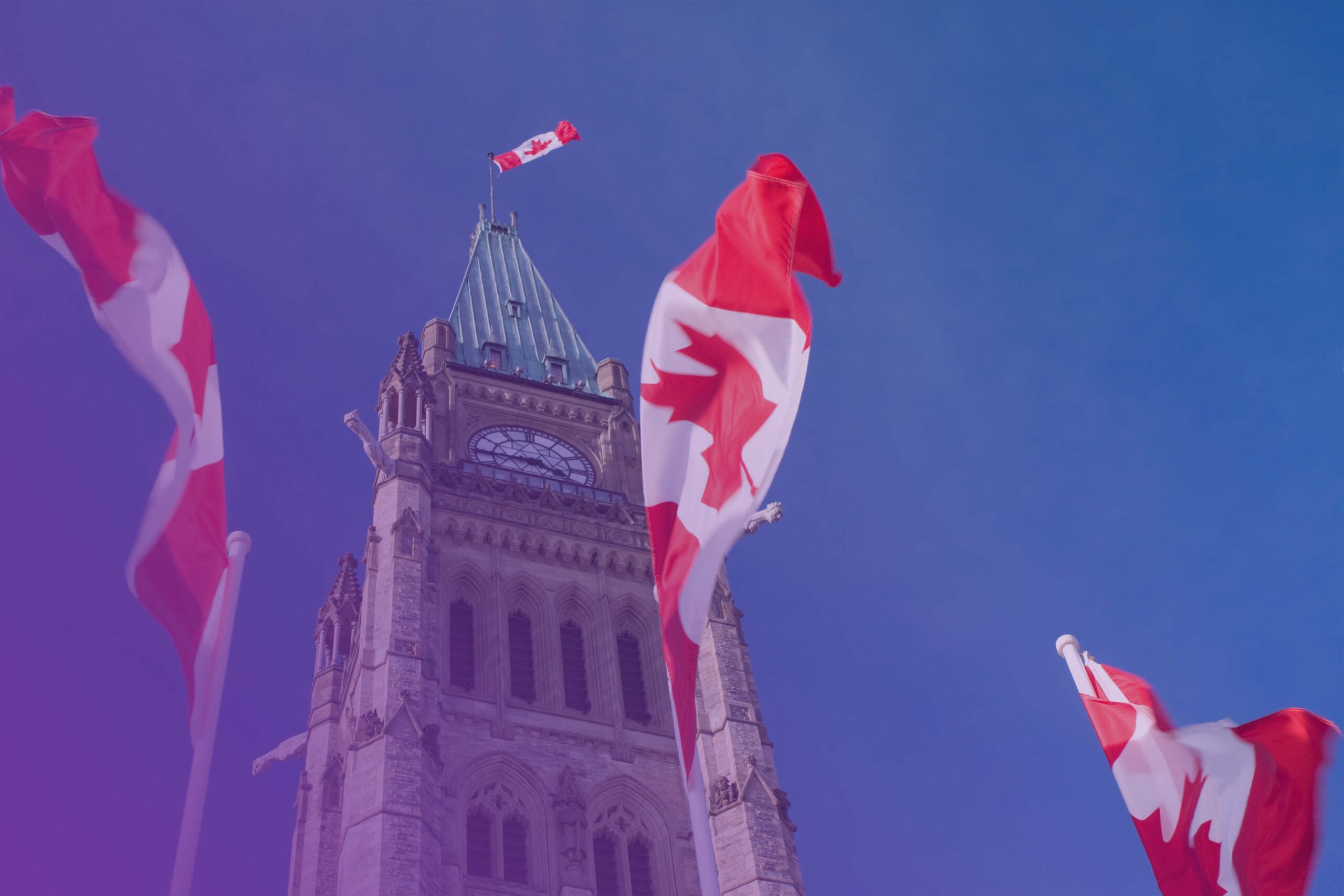Overview
This afternoon, the Hon. Chrystia Freeland, Deputy Prime Minister and Minister of Finance, introduced Budget 2024 entitled Fairness for Every Generation. This year’s budget is thematically focused on building housing, making life more affordable and spurring growth in the economy for the next generation. In a two-week period in the lead up to the budget, the government delivered near daily announcements of what was to come in the budget – which heavily focused on its core housing agenda.
Key Budget Forecasts
Budget 2024 forecasts a $39.8 billion deficit for the 2024-25 fiscal year. The government intends to continue to run a deficit of $38.9 billion in 2025-26 before lowering gradually to $20 billion in 2028-2029.
Canada’s real GDP rose 1.1% in 2023 higher than 0.3% forecasted in Budget 2023. This was supported by a 6.1% unemployment rate. Growth is expected to remain on track in 2024 at 3.5% annualized. The federal government’s net debt-to-GDP ratio is projected at 41.2% in 2024-25. Inflation rates are forecasted to continue declining into 2025.
Read More
• Budget 2024 Documents [LINK]
• Budget 2024 News Release [LINK]
• Budget 2024 Backgrounder [LINK]
• Deputy Prime Minister and Minister of Finance Speech [LINK]
Budget 2024 is broadly broken down into 8 key themes:
1. More Affordable Home
2. Lifting Up Every Generation
3. Lowering Everyday Costs
4. Economic Growth for Every Generation
5. Safer, Healthier Communities
6. A Fair Future for Indigenous Peoples
7. Protecting Canadians and Defending Democracy
8. Tax Fairness for Every Generation
Analysis
Budget 2024 represents what may be the last by the Trudeau government before the next election – scheduled for October 2025. While the government will be able to table one more budget in Spring 2025, today’s budget represents the likely last opportunity for the government to enact the commitments it wants.
Despite weeks of speculation around potential tax increases and the Finance Minister alluding to new measures, the government only focused on increasing the inclusion rate on capital gains and nothing else. The government is banking on this increase along with continued attrition of the public service and cost savings found within departments as the means to pay for new spending without increasing the deficit. In the face of a high deficit the government continues to echo it has the lowest debt to GDP ratio in the G7 as a means to show they are fiscally disciplined, a fact which is roundly dismissed as spending remains high. Conservative Party leader, Pierre Poilievre, called this a “costly budget” that Canadians will end up paying for, adding that every area was higher spend with no attention to reducing the risk of inflation and the affordability crisis. This is not a surprising statement by Poilievre and expect this to remain his point of criticism as a growing percent of Canadians remain concerned about the high spending of the Trudeau government.
Over the past two weeks, the federal government announced several core pieces of the budget with a significant focus on housing. This move is in part a response to the government’s shift in focus towards Millennial and Gen Z voters because of their recognition that these are the generations which are struggling the most with the affordability crisis and the groups they need to re-engage to secure their votes. In 2015, Millennial voters who were in their early-to-mid-twenties helped the Liberals sweep to a majority government. That same voting bloc are now in their thirties and are struggling with the high cost of living, lack of good jobs and feel they are further behind than their parents’ generation at the same stage of life. This is why the government has tied significant parts of this budget towards pocketbook issues like the removal of “junk fees” on concert tickets.
For a government with low approval ratings, this budget represents an attempt to change the narrative and demonstrate they can address the housing crisis – reclaiming lost ground with key voting blocs.. Their two-week pre-budget rollout was deemed a strategic success by many observers, as it allowed the government to own the public narrative with new announcements every day. If the government fails to maintain momentum and actually deliver on the key promises around housing/affordability measures, the Liberals will likely deepen the public sentiment for change in the next federal election. Very few budgets are as consequential as Budget 2024, but this document represents the last likely opportunity for the Liberals to get back into the fight and maintain some competitiveness with the Conservatives who continue to enjoy high approval ratings as the government-in-waiting.
Key Commitments
Tax Fairness for Every Generation
• Budget 2024 announces the government’s intention to increase the inclusion rate on capital gains realized annually above $250,000 by individuals and on all capital gains realized by corporations and trusts from one-half to two-thirds, by amending the Income Tax Act, effective June 25, 2024.
• To implement the second phase of refocusing government spending, Budget 2024 announces the government will seek to achieve savings primarily through natural attrition in the federal public service.
Building Housing – National Housing Plan
Apartment Loan Construction Program
• Providing another $15 billion in loans to build a minimum of 30,000 new rental apartments.
Canada Builds Program
• Establishing a new Canada Builds Program to encourage construction on government, non-profit, community-owned, and underused lands.
Transit & Infrastructure Funding
• A new $6-billion Canada Housing Infrastructure Fund to expedite critical housing infrastructure construction and upgrades. (To access federal public transit funds, communities must take actions to unlock housing supply near transit hubs)
• The Canada Infrastructure Bank (CIB) will expand its partnership with the private sector through the Infrastructure for Housing Initiative.
Supporting Density & New Construction
• Increasing the capital cost allowance rate for builders from 4% to 10%.
• Removing GST for new student residences constructed by public universities, colleges, and school authorities.
• Raising the annual limit for Canada Mortgage Bonds from $40 billion to $60 billion, potentially enabling the creation of up to 30,000 additional rental apartments annually.
• $400 million in additional funding for the Housing Accelerator Fund for municipal agreements to fast-track an additional 12,000 new homes in the next three years.
Indigenous Housing
• Budget 2024 will propose additional funding for First Nation, Inuit, and Métis communities over and above the $5 billion allocated to Indigenous infrastructure in 2024-2025.
• Investing $4.3 billion in Indigenous Housing through the Urban, Rural and Northern Indigenous Housing Strategy.
• Requiring provinces to dedicate at least 20% of funding received through the Canada Housing Infrastructure Fund to northern, rural and Indigenous communities.
Innovative Home Building
• Investing $600 million in modular home building and innovative construction.
Skilled Workers
• An additional $90 million for the Apprenticeship Service to create more apprenticeship opportunities.
• An additional $50 million investment in the Foreign Credential Recognition Program.
• Working with provinces and territories to remove unnecessary barriers to foreign credential recognition.
Supporting First-time Home Buyers
• Increasing the Registered Retirement Savings Plan (RRSP) withdrawal limit from $35,000 to $60,000.
• Extending the grace period for Home Buyers’ Plan withdrawals by three years.
• Proposing amendments to the Canadian Mortgage Charter to allow 30-year mortgage amortizations for first-time home buyers.
Combatting Fraud & Financialization
• Intending to restrict the purchase of existing single-family homes by large, corporate investors, including:
(Introducing new income tax legislation for expenses incurred by short-term rentals.)
(Extending the foreign homebuyers ban to January 1, 2027.)
Affordability
• Cracking Down on Junk Fees through amendments to the Competition Act, CRTC, introduction of Financial Consumer Protection Framework Regulations, and amending the Air Passenger Protection Regulations.
• Amendments to the Telecommunications Act to allow Canadian to better renew or switch between home internet, home phone, and cell phone plans.
• Work with the Canadian Transportation Agency to ensure fees such as carry-on, seat selection, checked bags, meals and Wi-Fi are clearly laid out.
• Work with provinces and territories to encourage best practices for ticket sales for concerts and sports
• Capping Non-Sufficient Funds Fees at $10
• Target healthcare labour shortages with $77.1 million over four years to more effectively integrated foreign trained healthcare professionals.
• Funding the National Pharmacare program with $1.5 billion starting in 2024-25.
• $6.1 billion over six years for a new Canada Disability Benefit
New National Defence Plan
Support Canadian Defense Industry and Procurement
• $10.2 billion over 20 years to maintain and renew National Defence infrastructure.
• $9.5 billion over 20 years to build a strategic reserve of ammunition and scale up the production of made-in-Canada artillery ammunition.
• $9 billion over 20 years to sustain military equipment under the National Procurement Program.
Creating Jobs/Economy
Pensions
• Create a working group with Pension Plans led by Stephen Poloz (former Governor of the Bank of Canada), and supported by the Deputy Prime Minister and Minister of Finance, to explore how to catalyze greater domestic investment opportunities for Canadian pension funds. This working group will identify priority investment opportunities with key focus areas for:
o digital infrastructure and AI investment
o physical infrastructure;
o airport facilities;
o venture capital investments;
o building more homes, including on public lands; and,
o the removal of the 30 per cent rule for domestic investments.
• The Minister of Transport will release a policy statement this summer that highlights existing flexibilities under the governance model for Canada’s National Airport System airports to attract capital, including from pension funds.
Interprovincial Trade
• Launching the first-ever Canadian survey on Interprovincial Trade in June 2024 to learn from business on the barriers and challenges faced with buying, selling and investing across provincial and territorial borders.
Investment Tax Credits
• Introduction of a new 10 per cent Electric Vehicle Supply Chain investment tax credit on the cost of buildings used in key segments of the electric vehicle supply chain, for businesses that invest in Canada across three supply chain segments:
o electric vehicle assembly;
o electric vehicle battery production; and,
o cathode active material production.
• Directing the Canada Growth Fund to develop an expanded range of CCFD offerings tailored to different markets and their unique risks and opportunities.
• Budget 2024 announces the design and implementation details of the Clean Electricity investment tax credit with the following design features:
o A 15 per cent refundable tax credit rate for eligible investments in new equipment or refurbishments related to:
Low-emitting electricity generation systems using energy from wind, solar, water, geothermal, waste biomass, nuclear, or natural gas with carbon capture and storage.
Stationary electricity storage systems that do not use fossil fuels in operation, such as batteries and pumped hydroelectric storage.
Transmission of electricity between provinces and territories.
o The Clean Electricity investment tax credit would be available to certain taxable and non-taxable corporations, including corporations owned by municipalities or Indigenous communities, and pension investment corporations.
Provided that a provincial and territorial government satisfies additional conditions, outlined below, the tax credit would also be available to provincial and territorial Crown corporations investing in that province or territory.
Robust labour requirements to pay prevailing union wages and create apprenticeship opportunities will need to be met to receive the full 15 per cent tax credit
Enabling Large Projects to be Built Faster
• Provide $9 million over three years, starting in 2024-25, to the Privy Council Office’s Clean Growth Office to implement the recommendations of the Ministerial Working Group and reduce interdepartmental inefficiencies.
o Launch work to establish a new Federal Permitting Coordinator within the Privy Council Office’s Clean Growth Office.
• Set a target of five years or less to complete federal impact assessment and permitting processes for federally designated projects, and a target of two years or less for permitting of non-federally designated projects;
• Issue a Cabinet Directive to drive culture change, achieve new targets, and set out clear federal roles and responsibilities within and across departments with the objective of getting clean growth projects built in a timely and predictable manner;
• Build a Federal Permitting Dashboard that reports on the status of large projects which require permits, to improve predictability for project proponents, and increase the federal government’s transparency and accountability to Canadians; and,
• Set a three-year target for nuclear project reviews, by working with the Canadian Nuclear Safety Commission and Impact Assessment Agency of Canada, and consider how the process can be better streamlined and duplications reduced between the two agencies
• Amend the Impact Assessment Act to respond to the October 2023 Supreme Court of Canada decision that ruled that elements of the Act are unconstitutional.
Investment Incentives
• $725 million over five years, starting in 2024-25 to incentivize investment in innovation-enabling and productivity enhancing assets, Budget 2024 proposes to allow businesses to immediately write off the full cost of investments in patents, data network infrastructure equipment, computers, and other data processing equipment.
Indigenous Reconciliation
• $649.4 million over two years to improve First Nations elementary and secondary education on reserve.
• $545.1 million over three years for K-12 Infrastructure.
• $242.7 million over three years to increase access to post-secondary education for First Nations students through the Post-Secondary Student Support Program.
• $1.8 billion over 11 years, starting in 2023-24, to support communities under An Act respecting First Nations, Inuit, and Metis children, youth and families.
• Up to $5 billion in loan guarantees for Indigenous communities to create economic opportunities.
• $350 million over five years, starting in 2024-25, to renew Canada’s commitment to Indigenous Financial Institutions, including $30 million over five years for the Métis Capital Corporations which have, for decades, provided critical support to Métis entrepreneurs and businesses.
Accelerating Artificial Intelligence Adoption
• $2 billion over five years, starting in 2024-25, to launch a new AI Compute Access Fund and Canadian AI Sovereign Compute Strategy, to help Canadian researchers, start-ups, and scale-up businesses access the computational power they need to compete and help catalyze the development of Canadian-owned and located AI infrastructure.
• $200 million over five years, starting in 2024-25, to boost AI start-ups to bring new technologies to market, and accelerate AI adoption in critical sectors.
• $100 million over five years, starting in 2024-25, for the National Research Council’s AI Assist Program to help Canadian small-and medium-sized businesses and innovators build and deploy new AI solutions.
• $50 million over four years, starting in 2025-26, to support workers who may be impacted by AI, such as creative industries.
• $50 million over five years, starting in 2024-25, to create an AI Safety Institute of Canada to ensure the safe development and deployment of AI.
• $5.1 million in 2025-26 to equip the AI and Data Commissioner Office with the necessary resources to begin enforcing the proposed Artificial Intelligence and Data Act.
• $3.5 million over two years, starting in 2024-25, to advance Canada’s leadership role with the Global Partnership on Artificial Intelligence.
Research Investment
• $1.8 billion over five years, starting in 2024-25, with $748.3 million per year ongoing to SSHRC, NSERC, and CIHR. To provide better coordination across the federally funded research ecosystem.
• Budget 2024 also announces the government will create an advisory Council on Science and Innovation. This Council will be made up of leaders from the academic, industry, and not-for-profit sectors, and be responsible for a national science and innovation strategy.
• $600 million over four years, starting in 2025-26, with $150 million per year ongoing for future enhancements to the SR&ED program.
• $3.1 billion over 11 years, starting in 2025-26, with $1.5 billion in remaining amortization, to Atomic Energy of Canada Limited to support Canadian Nuclear Laboratories’ ongoing work.
• $26.9 million over five years, starting in 2024-25, with $26.6 million in remaining amortization and $6.6 million ongoing, to the granting councils to establish an improved and harmonized grant management system.
• $825 million over five years, starting in 2024-25, with $199.8 million per year ongoing, to increase the annual value of master’s and doctoral student scholarships to $27,000 and $40,000, respectively, and post-doctoral fellowships to $70,000.
• $30 million over three years, starting in 2024-25, to support Indigenous participation in research, with $10 million each for First Nation, Métis, and Inuit partners.
Consumer-Driven Banking (Open Banking)
• Announces that the government is calling on banks, fintechs, and credit bureaus to prioritize launching tools to allow renters to opt-in to reporting their rent payment history to credit bureaus, to strengthen their credit scores and unlock pathways for more renters to become homeowners.
• The government is announcing its intent to cap the NSF fees charged by banks to $10 per instance.
• The Financial Consumer Agency of Canada (FCAC) will be mandated to oversee, administer, and enforce Canada’s Consumer-Driven Banking Framework.
Other Significant Announcements
• Budget 2024 proposes to provide $607.9 million over two years, starting in 2024-25, to Transport Canada to top-up the Incentives for Zero-Emission Vehicles program.
• $273.6 million over six years, starting in 2024-25, with $29.3 million ongoing, for Canada’s Action Plan on Combatting Hate.
• The establishment of a new whole-of-government approach to space exploration, technology development, and research. The new National Space Council will enable the level of collaboration required to secure Canada’s future as a leader in the global space race, addressing cross-cutting issues that span commercial, civil, and defence domains.
What’s Next?
The Government will spend the next four Parliamentary days debating the budget and will then table the Budget Implementation Act No.1. This will be the first of two Implementation Acts the government will introduce to enact the contents of the budget. These Acts will become the top priority piece of legislation for the government who will seek to have the first Act passed before Parliament rises for the Summer on June 21st.
In the weeks following the budget’s tabling, the government will make a number of “echo” announcements of funding in the budget.
Political Reactions
Conservative Party of Canada, Hon. Pierre Poilievre
Hours before the budget was officially released, the CPC and Pierre Poilievre called Budget 2024 a “costly budget” that Canadians will end up paying for. In his initial speech in the House of Commons, Poilievre focused on the ever-increasing levels of spending. He mentioned specifically how every area the Liberals choose to spend money on ends up costing Canadians in the long run – using housing as the core example.
Poilievre continues to link inflation and deficit spending and summarized the need for a quick election to replace the government. Although carbon taxes are not mentioned in depth in Budget 2024, his response included them and suggested that Canada needs a “carbon tax election”. In a continued social media rollout, the Conservatives attack the Liberals spending on interest costs and debt payments, noting that $54.1 billion is being spent on debt servicing payments yearly.
New Democratic Party of Canada, Jagmeet Singh
NDP Leader Singh was quick to call Budget 2024 on X (formerly Twitter) a budget filled with handouts for corporations, and specifically mentioned “Greedy Galen Weston”. In a short press conference, Singh focused on the issues surrounding renovictions, and support that NDP pushed for on renters, such as the rental protection fund. He took credit for the pharmacare pieces, including expanded diabetes medication access and birth control.
He attacked the budget for continuing to include handouts for corporations, noting that it does not go far enough in tackling corporate greed. He noted several issues with the budget, including a disability tax credit of just $200 a month, the lack of a coordinated plan to tackle the infrastructure gap for Indigenous people, and the loss of 5,000 public service employees.
MP Don Davies responded in the House noting that all the good parts of the budget focused on housing were the result of the NDP as well as pharmacare and dentalcare. In addition, Davies focused on the need for continued support for Indigenous people, and the importance of helping Canadians transition towards green jobs. He criticized the lack of a corporate tax rate increase and lack of effective measures on excess profits.
Bloc Québecois, Yves-François Blanchet
The Bloc Québecois focused on the centralizing nature of the budget, and that each new intrusion of the federal government’s spending limits Quebec’s sovereignty and ability to exercise its own jurisdiction. Key topics mentioned on this were childcare, healthcare, and immigration.
Blanchet in his reaction to the budget called the deficit spending an “abomination” and raised concerns with the levels of spending in relation to value. He noted that it oversteps into Quebec jurisdiction for the benefit of Liberal electoral politics.



